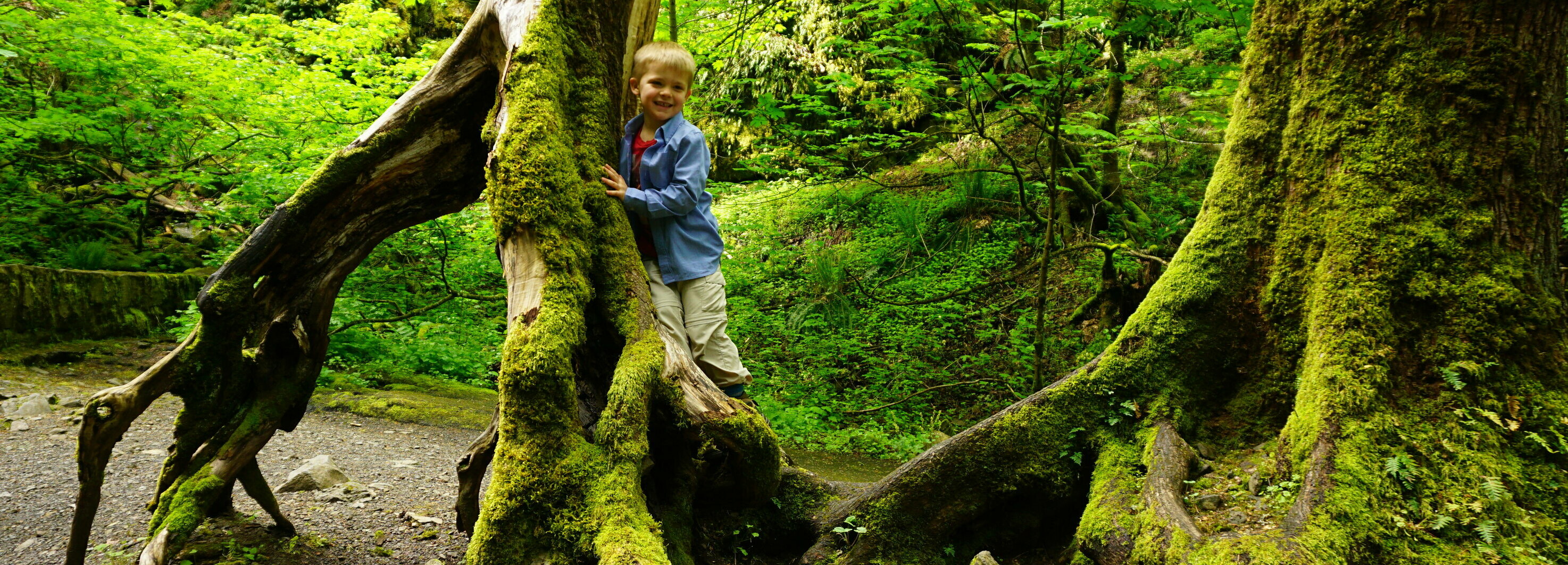Chair, Friends of the Columbia Gorge Board of Directors

I have lived most of my life in the Pacific Northwest and, like many residents and visitors, I remain in awe of the power and beauty of the Columbia Gorge. The range of microclimates and variety of landscapes continue to fascinate me. Hiking and exploring becomes even more fun when one can share it with others.
I have four grandsons aged 10 and under, and they all love the Gorge, but it resonates on a deeper level with the eldest, Oskar. Whether examining a wildflower with a magnifying glass at the Mosier Plateau Preserve, hugging a moss-coated tree, plunging into a pool at the base of a waterfall, or jumping for joy at a Hood River beach, Oskar continues to explore the Gorge with me.
Not all children are as lucky as Oskar. The Gorge sits just outside the metropolitan areas of Portland, Oregon, and Vancouver, Washington, yet many families still don’t have easy access. Even within Gorge communities, families may face significant transportation, financial, or other barriers to exploring and enjoying the Gorge.
For over 14 years, Friends of the Columbia Gorge has taken children from St. Andrew Nativity School in Portland and the Washougal School District in Washington out to the Gorge. For many of these kids, this is eye opening—their first opportunity to visit and hike in the Gorge’s wild landscape.
One of our board members, Kevin Price, a former Oregon State Parks manager, helps lead the spring St. Andrew field trip. “Who owns this land?” he asks. “We do!” the students shout. For BIPOC youth, this is an empowering moment.

For years Friends has worked with regional partners on how to make the Gorge more accessible to those who face barriers as they try to explore these natural areas. Our land trust is actively collaborating with tribes, BIPOC and accessibility recreation groups, the U.S. Forest Service, transit agencies, and others to examine how to make the Gorge more accessible to children and adults who face physical (mobility, vision) barriers or other obstacles due their background or identity.
Recently, Friends purchased land to prioritize access for these groups. Preserving and stewarding land in the Gorge remains a priority but providing access and pushing boundaries are vital to our future. I look forward to the day when all children will be able to experience the joy Oskar feels when immersed in nature in our Columbia Gorge.
Who owns this land? We (all) do!

Get involved with our work—find out how to stay updated, volunteer, or give.

